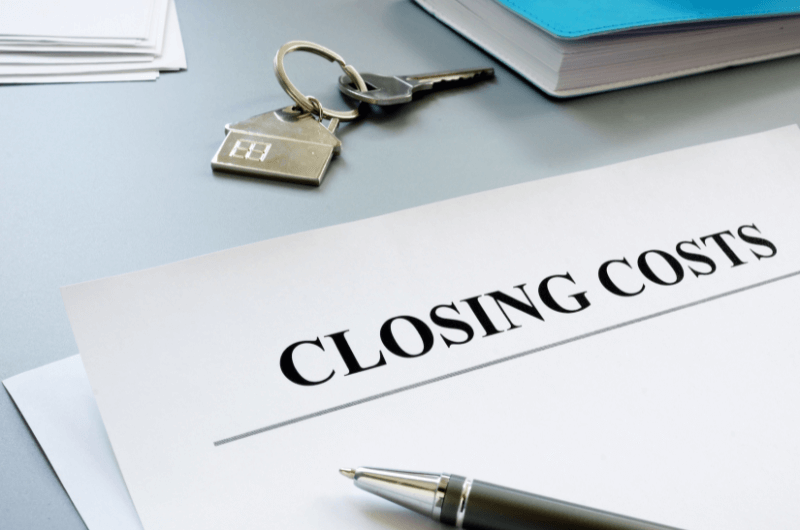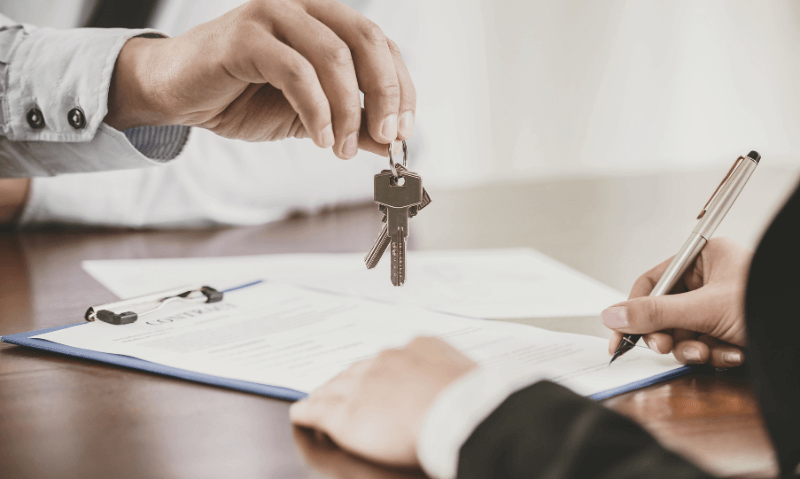
Closing costs are one of the most important and overlooked elements of buying a home. While every buyer has heard about closing costs, many homebuyers do not realize what factors into them and are surprised at the final price tag.
To help clear up any confusion and to aid homebuyers in the Badger state, here is a rundown of the average closing costs in Wisconsin. Also, keep in mind that selling a house by yourself can reduce some costs associated with the closing process.
What Makes Up Closing Costs?
The term “closing costs” sounds a lot more monumental than what the term comprises. Most items covered in the umbrella of closing a home sale are payments any reasonable person would expect to pay, like a down payment, real estate agent commission, home inspection fee, etc.
Where some people get tripped up are the less obvious costs that go into all of the payments needed to close on a home.
Both buyers and sellers can have closing costs. Examples of common closing costs by type include, but are not limited to:
Application costs: These are charged by lenders to the borrower for mortgage application processing.
Real Estate Attorney fees: Real estate lawyer’s fees cover the preparation and review of purchase agreements, contracts, addendums, etc.
Closing fees: These are also called escrow fees. They are paid to the company responsible for closing the sale. There are several small fees and administrative costs that go into the closing fee.
Credit report fee: This is charged to the seller or lender to check out the credit reports of the buyer from all three credit bureaus. The credit score of the buyer can affect loan eligibility and the loan estimate and can result in a higher interest rate.
Escrow Deposit: Most lenders require a deposit of two months of property tax and mortgage insurance payments that are placed into an escrow account on closing. The purpose is to ensure the bank and insurance company are covered should something happen to the buyer.
Federal Housing Authority (FHA) fees: Some FHA loan fees are due at closing.
Flood Determination and Monitoring Fee: This fee is paid to a flood inspector to verify if the property is in a flood zone and needs flood insurance.
Homeowners Association (HOA) fees: HOA fees are required to live in some developments. The amount required at closing costs depends on the HOA and is covered in their Charter or other administrative documents.
Homeowners insurance: The buyer must have evidence of a prepaid homeowners insurance premium.
Lenders Title Insurance Policy: This is paid to the title company and provides the lender and the buyer protection if something not found in the title search becomes an issue. Items that could arise, although rarely, are liens or even actual disputes of ownership against the seller.
Loan Origination Fee: The Loan Origination Fee is a lender’s fee and covers the costs associated with processing a mortgage loan application. Typically, the cost of the application fee is 1% of the entire loan.
Points: These are also called “discount points” and are upfront payments that are made to the lender that reduces the interest rate on a conventional loan. The fewer the mortgage points on a home loan, the higher the mortgage rates will be charged to that loan every monthly payment cycle.
Prepaid Interest Fee: This fee is the total interest accrued between the closing date and the date of the initial mortgage payment.
Private Mortgage Insurance (PMI): You will owe this if you put down less than 20% of the purchase price cost. Typically, one month of the Private Mortgage Insurance Premium must be covered at the closing.
Home Appraisal Fee: The Property Appraisal assesses the home to establish its fair market value. The appraisal figure helps buyers and sellers know they are getting a good price and estimate the amount of property and other taxes that will be owed on the home and at closing.
Property Tax: A property tax is one of a few property-related fees assessed at the local and state level. At closing, traditionally, property taxes incurred within 60 days of the home purchase are due.
Recording fee: The recording fee is charged by the local municipality or county government office to update the sale in public land records. These records are available to the public and help establish property ownership during disputes, sales, or property boundary changes.
Survey fee: A survey fee covers the cost of surveying the property to establish its boundaries. Surveying a property can be particularly important in rural areas where property lines can be less rigid than in more urban or suburban areas.
Title search fee: The title search is the fee charged to cover the analysis of property records. These searches help establish that a seller owns the property they are selling and is entitled to sell it.
Transfer Tax (or Transfer fee): A Transfer Tax is paid to the state or local government to transfer the title from the seller to the buyer or the mortgage lender.
Underwriting Fee: The lender charges this to verify buyer financial data, including income, employment, credit, and loan approval status.
Need To Sell Your House Fast?
We can buy your house and help you keep more money in your pocket by paying most closing costs!
Just fill out the form below or give us a call at: (414) 488-0082 to get your free, no-obligation cash offer!
How Much are Average Closing Costs
The average closing cost for a real estate transaction depends on several things:
Location
Closing costs in New York City will be much higher than in Madison. Within Wisconsin, depending on property values, urban and suburban closing costs tend to be more expensive in urban and suburban areas and less expensive in rural areas, with several exceptions.
One way to get a sense of the average closing costs for your area is to talk to a local real estate broker. They can give you a general figure that you can work with when budgeting for purchasing a home or, if you are selling, planning a strategy to ensure your home sells as quickly as possible.
Price of the Home
The home value affects taxes, loan amounts, real estate broker fees, etc. A very expensive home can drive closing costs extremely high, particularly in the areas of taxes and real estate commissions.
Realtor Fees
Real estate commissions vary on several factors, including the experience and reputation of the realtor, the average market price for the market the property is located, and the company the realtor works for. Additionally, the sale price can result in a higher real estate commission and a gross increase in overall closing costs.
While home purchase price commissions are generally the same in an area, they will vary across a region. For example, real estate agent commissions in a city are higher than in a rural area. The exception to this, as with home value, is when you have an enclave where home prices are higher.
Taxes
Even within Wisconsin, there are higher tax areas and lower tax areas. The disparity of property taxes tends to affect out-of-pocket closing costs. The variation in property taxes happens to taxes assessed at the local level.
Type of Loan
Another closing cost factor is the type of loan the buyer is taking out. Some loans require more payment than others. Other loans, like VA loans, do not require payments but may require insurance or have different loan terms. Those would factor into closing costs if more than one loan was involved in the purchase arrangement.

Should the Seller Consume the Closing Costs?
There are benefits of consuming closing costs when selling a house for the seller. If the seller pays applicable buyer closing costs, it can facilitate a sale and move it along faster. In some cases, if the seller cannot cover closing fees, the buyer might pick them up to facilitate their journey to homeownership.
What are Average Closing Costs In Wisconsin?
The average costs associated with closing a property sale in Wisconsin will run you a couple to several thousand dollars. On average, the percentage of the sale price closing costs will run you about 1.25%. That percentage does not count the taxes you will owe.
When you add in an average of about $1,000 in taxes, the amount you pay in tax will equal about 23.75% of the total fees associated with closing on a home.
Can You Avoid Closing Costs?
While you cannot avoid all closing costs, a cash purchase is one way of reducing most. There are many cash home buyers in Wisconsin, so if you are looking to avoid closing costs on your new home, working out a cash offer process on a house might be a good idea.
Optimizing Closing Costs Saves You Money
Closing costs are inevitable when you purchase a home, but there are steps you can take to minimize the financial pain. One option is to sell to a real estate investor that pays cash for homes. We buy houses in Milwaukee as is and pay cash. If you are looking to sell a house fast in New Berlin or any other part of the greater metropolitan Milwaukee area, call to get an appraisal today.
